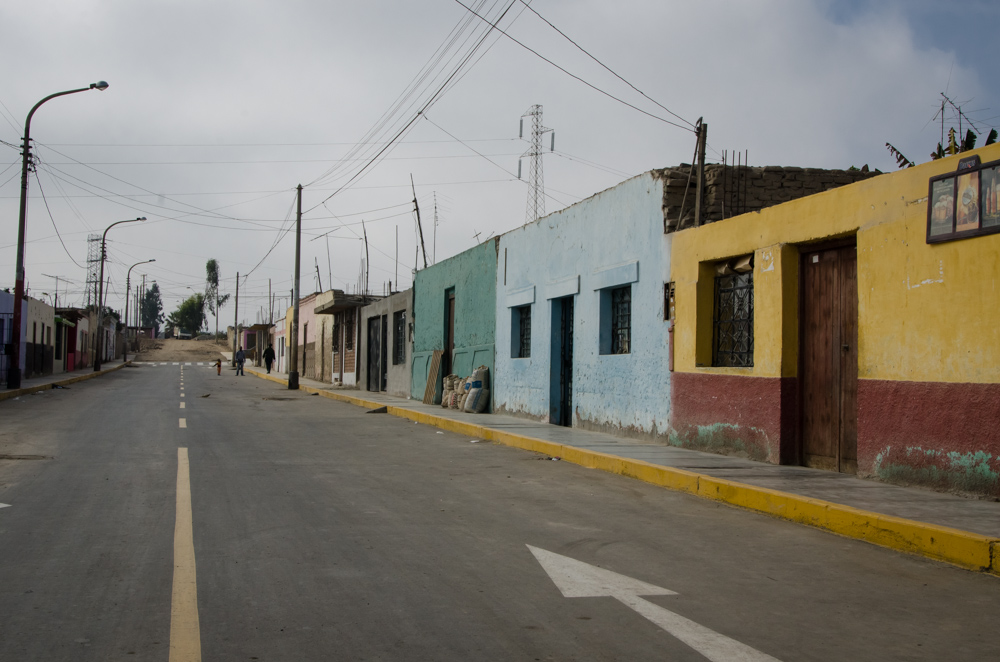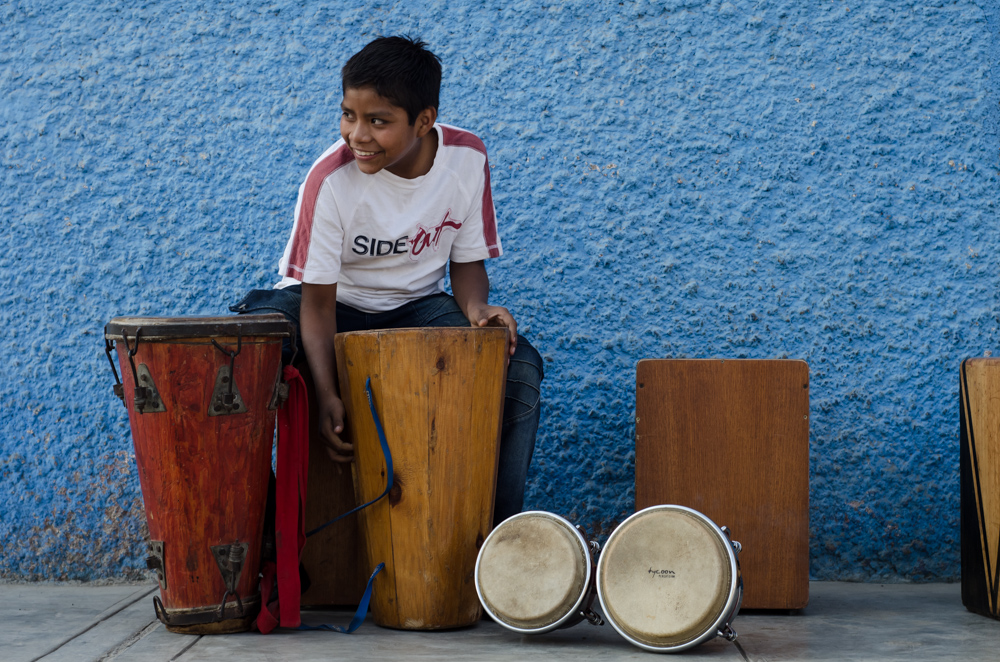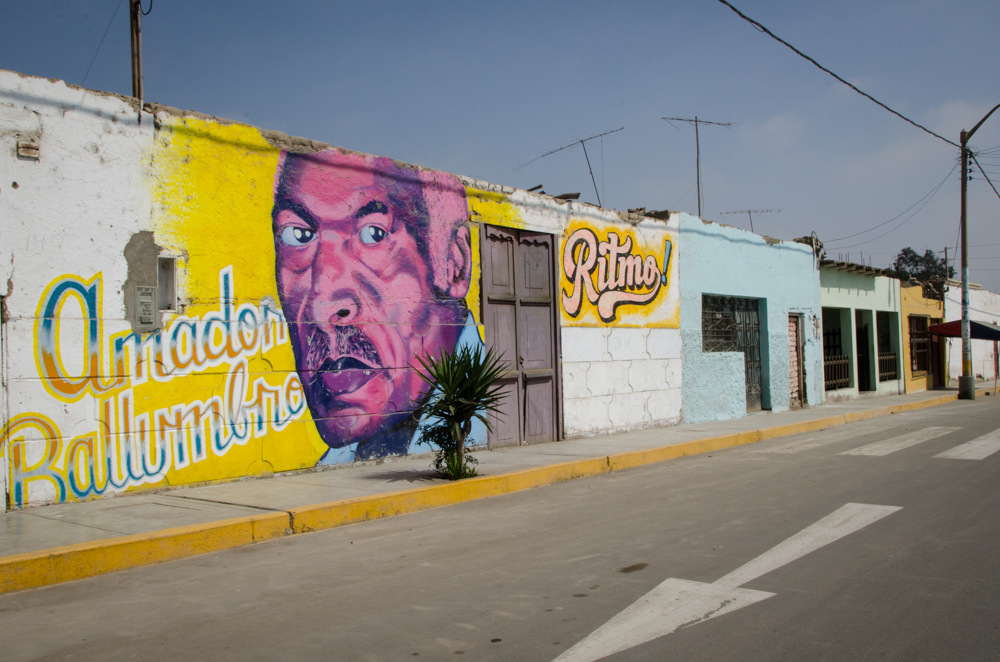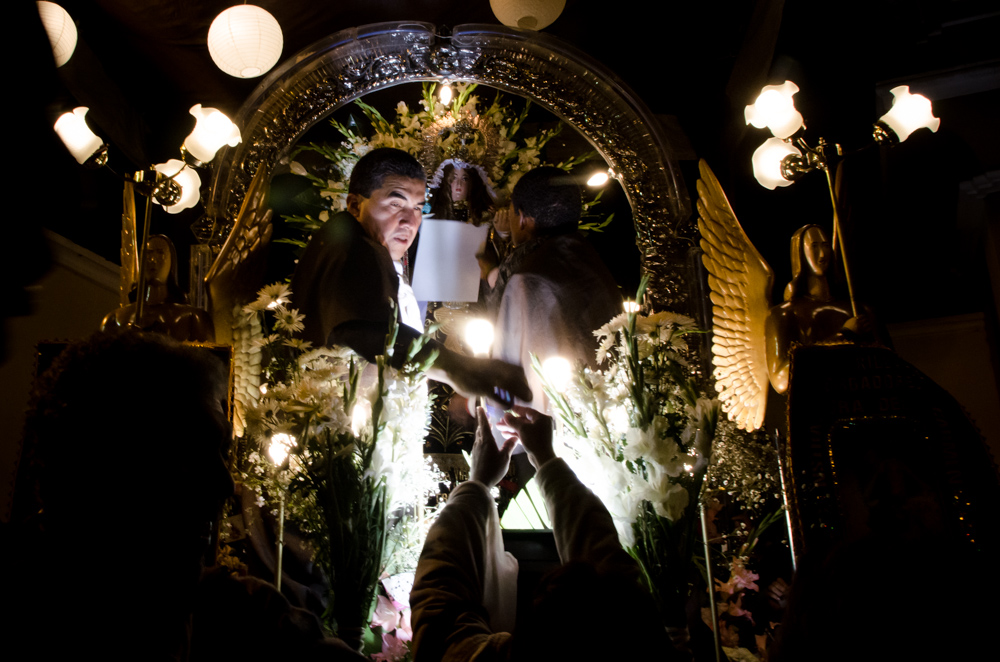Like on the rest of the Peruvian coast, the Chincha region, a few hours drive away South of Lima, is marked by the presence of the ancient haciendas, the large agricultural properties thrived on the exploitation of black slaves brought from Africa. El Carmen is a village founded after the abolition of slavery* on the outskirts of the San José hacienda – one of the region’s largest, now turned into a museum. El Carmen is actually made up of several localities, all predominantly black: El Guayabo, San Régis, San José, and El Carmen.

Since the 1970s, El Carmen has secured its place, in the national imagination, as the “original land of the Peruvian Blacks”. At the time researchers and musicians from Lima viewed it as the forgotten source of the new black urban folklore, and this Afro-Peruvian center builds its reputation as response to the creole capital.

Today, the Ballumbrosio family is the village’s main cultural ambassador. It inherited this position from its patriarch, Amador “Champita” Ballumbrosio (1933-2009) and maintains it thanks to the commitment of each of the fifteen sons and daughters to preserving, disseminating and perpetuating the village’s culture. The women specialize in dancing (mainly in the festejo) and the men in music – cajón, zapateo, and violin.

A year in El Carmen is paced by two major religious holidays that celebrate the Virgin of Carmen, the village’s patron saint: Christmas (with the atajo de negritos parade) and the feast of the Virgen del Carmen (Our Lady of Mount Carmel) on July 16th, the night parade of which is partly shown in the documentary.

* In 1821, a declaration freed all the slave descendants born from that year on. It is only in 1854 that President Ramon Castilla signed a decree that abolishes slavery unconditionally in the whole country.
** The atajo de negritos (“bunch of little Blacks“) describes a group of young dancers who perform tap-dancing (zapateo) to honor the Virgin and Baby Jesus. Visit the page Zapateo & the Atajo de negritos for more details.